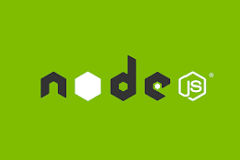Node.js, which is a popular JavaScript runtime for server-side programming. The course typically covers fundamental concepts such as asynchronous programming, event-driven architecture, and the use of Node.js modules. It may also delve into more advanced topics like connecting to databases, creating RESTful APIs, and building scalable network applications.
The course is suitable for beginners who are new to server-side development, front-end developers looking to expand their skillset to full-stack development, and IT professionals wanting to upgrade their knowledge with current web technologies.
Classes can be scheduled for weekends to accommodate working professionals and students who require flexibility. They may be conducted in live, interactive online sessions to facilitate real-time learning and problem-solving.
Personalized attention ensures that the learning pace and style are tailored to individual students' needs, with practical assignments and projects to cement understanding.
Many courses offer additional resources such as recorded lectures, peer collaboration forums, and post-class support for continued learning.








